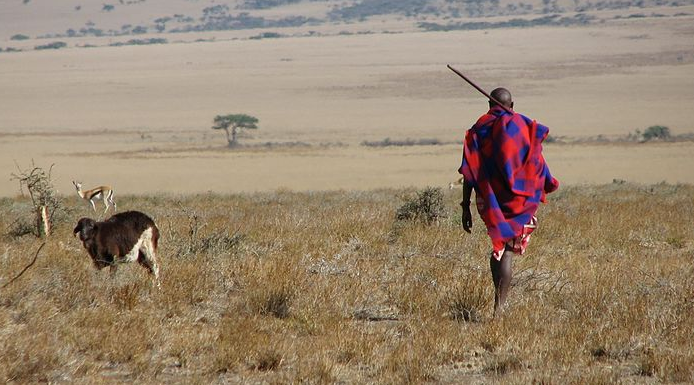Use of excessive force and live ammunition to disperse demonstrations in resulted in at least 10 deaths, including a two-year-old girl says the report
[Global: Africa]
The U.S.-backed regime of Yoweri K. Museveni engages in gross human rights violations, including killings of civilians and torture of civilians by state security forces, such as cutting off of body parts, squeezing of genitals, water boarding, tearing off of fingernails, and burning with molten plastic, says a bluntly-worded report by the State Department.
What’s more, Uganda’s security forces commit the abuses “generally with impunity” says the report, part of the U.S. Department of States’ annual review of human rights conditions around the world. “The government took minimal steps to hold perpetrators accountable,” says the newly issued report.
U.S. forces are currently working arm-in-arm with the Ugandan military searching for LRA warlord Joseph Kony in the Central African Republic. There have been media reports that both the LRA and Ugandan military have committed atrocities against civilians in the Central African Republic.
The State Department’s report also covers kidnappings of opposition party activists in Uganda. The report covers the period for 2011; Gen. Museveni has ruled the East African country for 26 years. His military is trained and equipped by the U.S. and the U.K.
“On April 14, SSF’s use of live ammunition to disrupt walk-to-work protests seriously wounded a pregnant woman and one student. On April 29 and May 12, dozens of people, including some journalists, were beaten by SSF during protests in Kampala and Entebbe,” says the State Department’s report.
“On April 28, SSF arrested opposition Forum for Democratic Change (FDC) party leader Kizza Besigye by breaking a window of Besigye’s car and spraying him with large amounts of a noxious chemical at point-blank range,” adds the report. “Besigye suffered temporary damage to his eyes. Police took no action against officer Gilbert Arinaitwe and other SSF members who used excessive force to arrest Besigye.”
SSF is a reference to State Security Forces, which would include police, the military, and para-military forces.
The report also notes that on “several occasions during the year,” police placed Besigye under “preventive arrest” by “surrounding his home and prohibiting him from leaving.”
The FDC and other opposition parties in Uganda say Uganda’s last presidential elections were fraudulent and haven’t recognized Gen. Museveni’s announced victory. Protests, including the walk-to-work campaign have been met with force.
“In October police accused opposition FDC party women’s leader Ingrid Turinawe and two others of trying to overthrow the government through walk-to-work related activities, charged them with the capital offense of treason, and remanded them to jail. Turinawe and the two coaccused were released on bail on December 12. Charges remained pending at year’s end,” says the report.
Last month, Turinawe accused the police of sexual assault after television cameras recorded an officer, in a group trying to arrest her, violently pulling her right breast.
“Local and international human rights groups reported that the government detained civilians in military facilities and unregistered detention facilities known as ‘safe houses,’ where detainees often were held incommunicado and abused,” says the report.
According to the State Department’s report, in addition to official corruption; arbitrary and politically motivated arrest and detention; incommunicado and lengthy pretrial detention; restrictions on the right to a fair trial; electoral irregularities; trafficking in persons; and forced labor, including child labor, the “three most important human rights problems in the country were lack of respect for the integrity of the person (including unlawful killings, torture, and other abuse of suspects and detainees); unwarranted restrictions on civil liberties (freedom of assembly, the media, and association); and violence and discrimination against marginalized groups (women, including female genital mutilation victims; children, including victims of sexual abuse and ritual killing; persons with disabilities; and the lesbian, gay, bisexual, and transgender community).”
The U.S. said there were “several reports that the government or its agents committed arbitrary or unlawful killings, as SSF killed opposition party demonstrators and other citizens.”
“SSF’s use of excessive force and live ammunition to disperse antigovernment demonstrations in April and May resulted in at least 10 deaths, including a two-year-old girl in Masaka,” the report adds. “Authorities arrested reserve police officer Paul Mugenyi for the April 20 killing of the two-year-old girl but held no one accountable for the nine other killings.”
“Police also arrested police officers Aggrey Arineitwe and James Babaranda for the April 11 killing of a 16-year-old-girl in Kabale, who was shot and killed by police using live ammunition to disrupt a strike at a secondary school. Arineitwe was released for lack of evidence, and charges against Mugenyi and Babaranda were pending at year’s end,” the report adds.
The report also accused the army, the Uganda People’s Defense Forces (UPDF) with “the indiscriminate use of live ammunition” during cattle recovery and disarmament operations in the Karamoja Region leading to deaths, including of six Karamojong cattle rustlers on September 5.
The report also mentions “politically motivated abductions or kidnappings” noting that last year on “January 18, opposition Democratic Party (DP) mobilizer Annette Namwanga was kidnapped by unidentified individuals from her job at Mulago Hospital. On January 25, the Chieftaincy of Military Intelligence (CMI) acknowledged arresting Namwanga. On February 6, Namwanga and nine others were charged with terrorism and remanded to prison. On April 1, the High Court released Namwanga on bail. Charges against her remained pending.”
Additionally, international and local human rights organizations including Uganda Human Rights Commission (UHRC) reported incidents of torture by government security forces, including “caning, severe beating, squeezing of private parts, stabbing, kicking, tying of limbs in contorted positions, forced marching, rape, water torture, tearing off of fingernails, burning with molten plastic, and cutting off of body parts.”
Adds the report, “From January to June, the African Center for Treatment and Rehabilitation of Torture Victims (ACTV) registered 214 allegations of torture against the police, 24 against the UPDF, three against military police, 46 against the RRU, 14 against unspecified security personnel, and 17 against prison officials.”
The report also says, “There were numerous reports of torture and abuse in detention facilities operated by CMI, CMI’s Joint Antiterrorism Taskforce (JATT), and the RRU. On March 23, Human Rights Watch (HRW) published a report on extrajudicial killings, torture, and illegal detention by the RRU. HRW accused the RRU of committing six extrajudicial killings in 2010 and criticized the government for failing to investigate or prosecute abusive officers. The report heightened concerns that the RRU, CMI, and JATT operated under unclear mandates and committed serious abuses with impunity. In December police acknowledged the RRU’s record of human rights abuses and disbanded the unit.”
“During the year the UHRC awarded 1.1 billion Uganda shillings ($400,000) to victims of torture and other abuses. In its 2010 annual report, the UHRC reported registering 797 human rights complaints against 743 individuals, including 84 UPDF members, 305 police officers, 93 personnel of other security agencies, 30 prison warders, and 231 private citizens,” says the report. “Of the 797 complaints, 28 percent involved allegations of torture or cruel, inhuman, or degrading treatment and punishment. During the year the Police Disciplinary Court issued a written reprimand to RRU officer Nathan Byona and senior police officers Nixon Karuhanga and Julius Kwikirizi for torture, extortion, and mismanagement and reduced their pay.”
“Since 2000 the government has offered blanket amnesty to former LRA and Allied Democratic Forces rebel combatants to encourage defections. More than 26,000 individuals have received amnesty since 2000, and more than half of these are former LRA combatants,” adds the report. “During the year the government approved 29 amnesty cases. On September 22, the Constitutional Court upheld the constitutionality of the Amnesty Act, ruled that the Department of Public Prosecutions (DPP) illegally denied LRA Colonel Thomas Kwoyelo’s request for amnesty, awarded Kwoyelo amnesty, and ordered his release from prison. Kwoyelo was captured by the UPDF in the DRC in 2009 and is accused of dozens of murders, mutilations, and abductions. The government claimed Kwoyelo’s alleged crimes make him ineligible for amnesty and refused to release him from prison. Kwoyelo remained in custody at year’s end.”
The report also details media intimidation and harassment, including the arrest of journalists and the blocking of of access to Facebook and Twitter.
“During the February presidential and parliamentary election campaign period, for instance, opposition FDC party president Kizza Besigye was denied access to numerous state-run and privately owned radio stations,” says the report. “On February 17, police in Gulu arrested and later released opposition Member of Parliament Christopher Achire for allegedly defaming President Museveni. Achire was charged with inciting violence and granted bail. Hearing of the case was pending at year’s end.”
“On May 17, President Museveni publicly described several media outlets–including the Daily Monitor, NTV, the BBC, and al Jazeera–as ‘enemies of Uganda’s recovery,'” says the report.
Security forces, says the report, also “illegally detained radio presenter Augustine Okello. Okello was charged with treason in August and remained in custody at year’s end.” Security agents also arrested on September 17, Vincent Nzaramba “for publishing a book about Museveni’s 25 years in power entitled People Power–Battle the Mighty General–He is Finished. Police claimed the book incited violence, detained Nzaramba at RRU’s Kireka detention facility, and released him without charge on September 22.”
Agents also raided the offices of local-language Ggwanga newspaper, arresting then releasing several officials; on December 17, security agents “allegedly assaulted Daily Monitor newspaper journalist Emmanuel Opio in Lira,” says the report. A Rwandan journalist, Charles Ingabire, was shot to death in Kampala on December 1.
“On June 1, police charged Timothy Kalyegira, the editor of online publication Uganda Record, with criminal libel for the 2010 online publication of a conspiracy theory blaming the military for the July 2010 terrorist attacks in Kampala. At year’s end hearing of the case was pending,” says the report.
The report noted that on January 26, LGBT activist David Kato, whose picture had been published in a tabloid in 2010 under the headline “Hang Them,” was “bludgeoned to death at his home outside Kampala. On February 2, police arrested Sidney Enock Nsubuga for Kato’s murder. On November 9, Nsubuga pled guilty and was sentenced to 30 years’ imprisonment.”
“The law provides criminal penalties for official corruption. However, the government did not implement the law effectively, and officials frequently engaged in corrupt practices with impunity,” the report says. “The World Bank’s most recent Worldwide Governance Indicators reflected that corruption was a severe problem.”
In 2011, the report says, the Inspector General of Government (IGG) “charged former vice president Gilbert Bukenya, current Foreign Minister Sam Kutesa, NRM Chief Whip John Nasasira, and Labor Minister Rukutana Mwesigwa with corruption-related offences.” The NRM is reference to the ruling National Resistance Movement.
“In October Kutesa, Nasasira, and Mwesigwa took administrative leave from their respective ministries pending resolution of these corruption allegations,” adds the report. “At year’s end the cases against Kutesa, Nasasira, and Mwesigwa were pending a ruling by the Constitutional Court on whether acting IGG Raphael Baku has the authority to indict ministers. In November the IGG ‘discontinued’ prosecution of one count of corruption against Bukenya, and in December the ACD acquitted Bukenya of the remaining corruption charge.”
The report did not discuss the on-going allegations about corruption in the oil industry which has roiled the country.
The report also covers horrendous conditions in prison including the placement of minors in the same cells with adults.
“Speaking Truth To Empower.”











